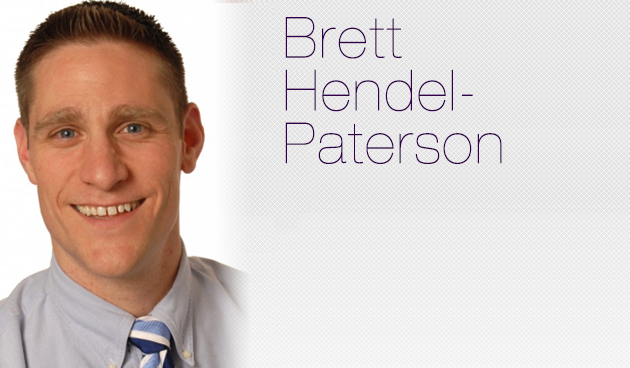I am coming up on my two year anniversary. Not my wedding anniversary (soon to be 15 years – thanks Maia!), but two years since I joined the ranks of the patients. It was two years ago this week that my day was interrupted by a page from my internist saying, “I don’t know how to tell you this, Brett, but you have Chronic Lymphocytic Leukemia.” At 38, I became one of the small percentage of patients who are diagnosed with CLL at a young age.
Several folks have asked me how it has changed me or how I work. It’s funny – I don’t really know how to answer that. Sometimes I am grateful for CLL; it has required me to strive to balance my professional life and private life in a way that I never had to before. I have also been very grateful to my group at HealthPartners. They have been nothing but supportive, and nobody complained to me that they have had to cover for my absences from work. The reality is that there are times, like my hemolytic anemia bout, that CLL seems all-consuming. Other times, like the past many months it slips into the background. Work projects come up. Our global health course starts and ends. Family events like Cub Scouts or baseball take center stage.
Limitations in my energy and ability to cope with overworking have taken some getting used to. I wish I could say I had it figured out, but I continue to function more in a pendulum swing than a steady state. I have overworked/overstressed, had health crises, cut back and said “no” to new work projects in an effort to try to find that steady state. And then as my health stabilizes I begin to take on more once again. I suspect I am not the only person who has a tendency to over commit.
My work abroad in global health has taken the biggest hit over the last two years since my CLL diagnosis. I am on a shorter travel leash than before being diagnosed with CLL, particularly after last summer’s excitement with the hemolytic anemia in Cambodia and Thailand.
I have also become a consumer of health care in a way I wasn’t before. I receive monthly infusions and nearly weekly blood draws – becoming a connoisseur of the needle poke. I have remained an “easy stick” so far, with veins that tend to be easy to hit for the lab techs and nurses. At the same time, I have come to appreciate the various techniques for drawing blood that I never really noticed before. My favorite is the quick stick. First time right into the vein, draw the blood, and then done. I also occasionally experience the very human variation in skills leading to the an advance/withdraw/advance/withdraw cycle until the needle is actually in the vein. It reminds me of how I used to put in a central line – rooting around until I could find the vein. After this last one, I bear the stigmata of the blood draw or IV for the next couple of weeks.
How many of us physicians notice the size of a bruise after we (or our residents) put in a central line? Now in our hospital we have PICC teams, IV teams, and many other folks who put in a lot more lines than I do. While they are more adept at it than I am, it is still unfortunate for patients to be a “hard stick” – those who are obese, or have thin hard veins, or veins that have been burned up by chemotherapy or repeated health care.
Needle experience and all, I continue on my journey through life with CLL as one of many companions. My cancer means my prerogative to choose the metaphor. I still do not find that “battling” with cancer fits into my life and worldview. The CLL is a part of me and is present reminding me to spend a little more time with my family, a little less time at the hospital, and motivating me to try better to balance work, leisure, health, fitness, and family. I grew up camping and canoeing in the Boundary Waters Canoe Area. These past two years have been full of ups and downs, twists and turns, joys and sorrows. I do not know what the next months or years have in store, but I intend to just keep paddling.



Leave A Comment